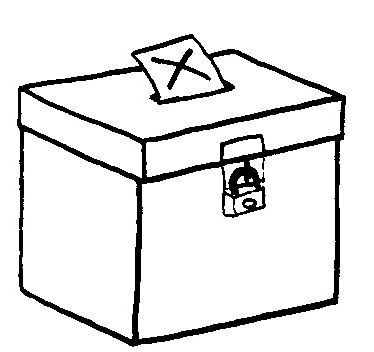Debate (original) (raw)
Each fortnight there will be a specific subject of debate on either politics or philosophical thought, under which we would like to see user generated opinion and discussion from all sides of the spectrum at all levels and abilities.
The Proportional Representation electoral system would be detrimental to democracy and representation in Britain. Debate.
A background on the PR voting system:
Proportional representation (PR), sometimes referred to as full representation, is a class of voting system aimed at securing a close match between the percentage of votes that groups of candidates obtain in elections, and the percentage of seats they receive (e.g., in legislative assemblies).
PR is often contrasted to plurality voting systems, such as those commonly used in the United States and (much of) the United Kingdom, where disproportional seat distribution results from the division of voters into multiple electoral districts, especially “winner takes all” plurality (“first-past-the-post” or FPTP) districts.
(taken from wikipedia: http://en.wikipedia.org/wiki/Proportional_representation)
And a little discussion to begin with:

Elections have grown to centre more and more around the party leaders. There is something of an illusion that we have a presidential system here in the UK (the ‘presidential’ tv debates of course did much to strengthen this illusion); and that when people vote, they are voting for the party leader they want as prime minister. Of course, in our system of parliament, this is simply not the case. It is a system that is based on local representation, i.e. constituencies elect their MPs on the basis of issues that they want represented in parliament. Though of course, with the growing media coverage and communications we have, the position of prime minister has become much more important and influential.
The percentage of the national vote that each leader got should have no relevancy as elections are confined to 650 separate constituencies. Though, the media has a tendency to highlight these discrepancies between ‘national figures’ (i.e. the percentage of the overall vote) and the number of seats that each party gains, and this is what people tend to follow. It is once again the presidential illusion.
Due to party discipline, and the dangers of not voting with the party line, there is really little room for MPs to convey local issues, to vote as their constituencies would like them to.
Because of this many would argue that local representation is obselete. But we have seen some situations in which MPs have voted with their consciencs and/or local constiuencies (i.e. one of Blair’s anti-terror bills).
I thus, do not think local representation is completely dead, and that, in extraordinary circumstances, it surfaces, along with the conscience of the MP.
I’m ranting now, and, seeing as this is a debate, I’m going to take a side. That being we should keep our current electoral system; the PR electoral system would, I believe, be detrimental.
If you remove it/change it, the following issues may well arise…
>Parliamentary paralysis.
Having proportional representation will mean that much smaller parties, with minority issues will have a much greater presence within parliament. For example, the BNP would have a number of seats. Perhaps parliament would become paralyzed by so many competing minority issues.
>What would be the point of MPs? Of course, there has been much animosity toward MPs recently due to the the expenses scandal, but when they group themselves, they are able to keep governments in check. They also provide local representation and surgeries for their constituency. Under PR they would have no discernible use; they would simply be voting tools for passing government legislation.
besides…
>First-past-the-post does work
Mr Cameron and Mr Clegg have told us that our system is ‘broken’. Though, in the last one hundred years, we have only had three hung parliaments (1929, 1974, 2010).
I look forward to hearing your views…
Updates;
-Take a look at what Ernest, from Dorchester, says about proportional representaion on the BBC news website; http://news.bbc.co.uk/1/hi/uk_politics/election_2010/8646077.stm
